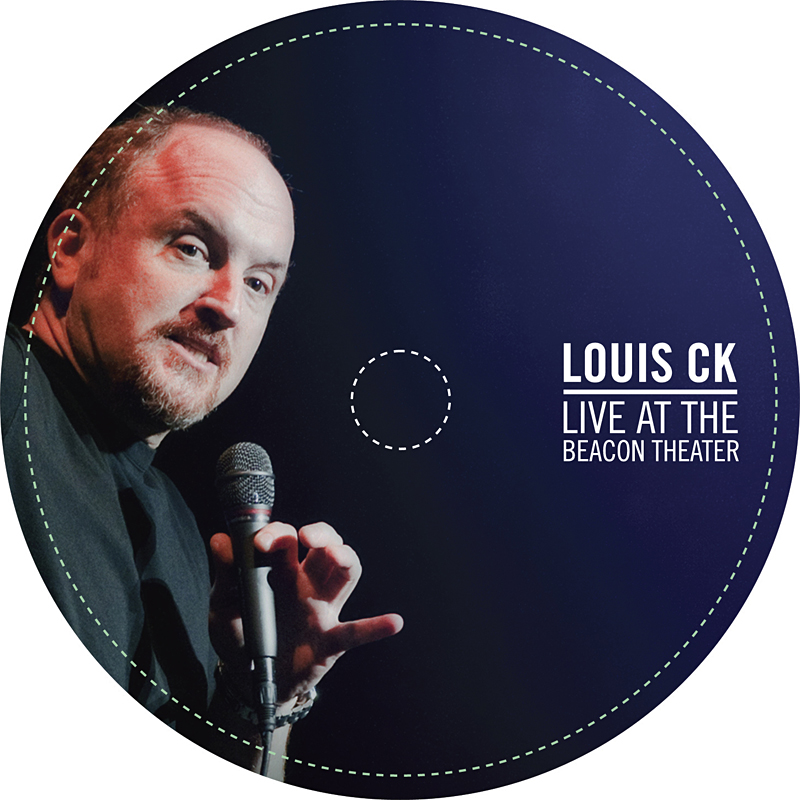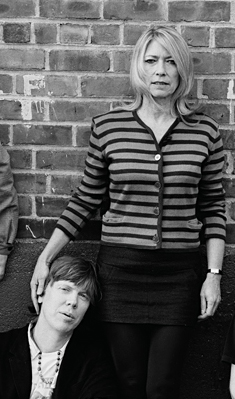Admit it:The first time you heard Ke$ha’s breakout hit “Tik Tok,” you were interested. You might’ve found it repulsive, catchy, stupid, annoying, bewildering, dazzling, or offensive to your otherwise refined ear. But “Tik Tok” most definitely made you sit up and listen.
First, there’s the pulsating, strobe-light beat that erupts into a full-on electro-trash shout-along chorus. Then there are the lyrics—the kind you can’t believe someone actually wrote—in which Ke$ha half-raps about the nonstop party we’re supposed to believe is her life. She wakes up in the morning “feeling like P. Diddy,” brushes her teeth with Jack Daniel’s, and pretty soon hits the club with her friends, where she prick-teases all the boys “tryin’ to touch my junk, junk.” Finally, there’s the voice delivering those rhymes—a somewhat grating-yet-amusing nasal drip that sounds like a teenage Alanis Morrissette drunk on Auto-Tune. It’s all so void of depth that listening to it makes you feel dumb. You love it, don’t you?
“Her songs are just so unabashedly trashy and catchy,” says Keith Caulfield, associate director of charts for Billboard. “It’s the kind of thing where you hear it for the first time and go ‘What is this?’ and after a couple times you go ‘God, I love it!’ “
For the most part, that which appears dumb in the pop world is fueled by a stroke of genius. Some wear genius on their sleeve: Beyoncé is a one-woman blaze of talent and elegance; Lady Gaga makes up for her music’s lack of depth by wearing raw meat in public. Ke$ha’s genius, on the other hand, is a little more elusive.
When Ke$ha Sebert splashed onto the scene in 2009, she arrived looking like a Barbie doll who’d been up all night with Mötley Crüe—disheveled blonde hair, torn fishnet stockings, heavy bracelets on her wrists, and the same sultry/pouty face you see on every teenage girl’s Facebook page nationwide. During interviews, Ke$ha even acted like a Sunset Strip rocker, drinking beer and bragging about how hard she’d partied the night before. She burped heartily, referred to her BlackBerry as her “DoucheBerry,” and offered no apologies for doing so.
The persona is there to match the music. In her songs, one is dazzled by fantasies of Ke$ha and her girlfriends living it up at big-city clubs, prick-teasing the boys. At best, the boys in Ke$ha’s songs are allowed to cop a quick feel, or invited to a naked slumber party in her basement. But for the most part, they’re cast aside like wastepaper. For a female pop star, her themes are familiar—self-empowerment and individual freedom a la Katy Perry and Pink—but there’s a twist.
“Ke$ha’s particular spin is that she acts like a guy,” says Ann Powers, pop critic for the Los Angeles Times and author of several insightful reviews of Ke$ha’s work. “She embodies certain qualities that are stereotypically male. She’s overindulgent and aggressive. She puts herself first; she doesn’t care about being polite or pretty, yet she’s not androgynous the way Patti Smith was.”
Ke$ha’s not the first to have dabbled in this arena. Lil’ Kim turned the tables on rap by embracing the genre’s aggressive sexuality. Crass public behavior has been an on-again/off-again theme for Madonna for 30 years. One could even hear women like Ethel Waters singing openly suggestive numbers in Harlem nightclubs in the ’20s and ’30s. While it’s still not the norm, sexual frankness among women is certainly not so shocking in the 21st century. The particular freshness Ke$ha has brought to the table backs up the attitude displayed in her music with a very believable public persona. “While most female pop stars merely put on its costumes and masks, Ke$ha fully embodies the character,” says Powers. “She is very consistent in the way she presents herself.”
And that character is a shit-talking, lipstick-smacking girl next door, a sweet girl who has no trouble hanging with the boys. Just as she has a beer in hand during most of her interviews, Ke$ha finds a way to mention guzzling booze in nearly every song; just as easily as she drops words like “vagina” and “douche” into interviews, she finds ways to integrate words like “dick” and “slut” into her songs. Among men, stuff like that is second nature, and we’ve come to expect it from many male performers, from Guns N’ Roses to Eminem. It may no longer be taboo for women to flaunt their sexuality, but it still is somehow socially unacceptable for women to act drunk and horny in public, like a man. Yet Ke$ha presents that crassness without shame, and she does it with the angelic face of a Barbie doll.
“She’s like a squeaky-clean Peaches,” says Caulfield. “Or a dirty Britney Spears.”
Pop is about right now, and there’s no question Ke$ha was engineered by her producers for this moment. In addition to taking female sexuality to another level, she’s written songs so blaringly catchy that they jolt from the airwaves like a cell phone ringing in the middle of a funeral, and she’s stripped her message of substance so that we’re left with pure vapid entertainment, a la Jersey Shore.
So far she’s managed to sustain the momentum of her 2010 debut, Animal, with Cannibal, a nine-song EP. Cannibal’s text-speak-titled single, “We R Who We R,” gave Ke$ha her fifth consecutive #1 hit. But as times change and attention spans grow dimmer, one has to question her staying power. Already she’s hinted at future musical directions by citing David Bowie, the Flaming Lips, the Beastie Boys, and Prince as her influences. And while it was curious to hear a pop starlet appealing to Pitchfork readers with such name-dropping, one need only hear Animal‘s “Backstabber” for evidence of her possible trajectory. In it, Ke$ha disses some jealous, loose-lipped girl she knows over a disco-trash beat. But she goes it sans Auto-Tune and less nasally, revealing a layer to her music on a par with that of Brazilian dance-floor hedonists CSS.
“I’m interested to see how Ke$ha evolves,” says Powers. “She’s obviously smart. She will have to adapt her character over time, but that’s common in pop. Look at Pink. She had a #1 hit this year after 15 years as an ‘ingenue.’ It can happen!”
“Every time an artist has this sort of of-the-moment success, people are always asking, ‘Well, are they going to age well?’ ” says Caulfield. “I don’t think it should be about whether they can age well. Everyone was writing off Madonna early in her career. When she first came out, everyone thought Cyndi Lauper was the great artist and Madonna was the trampy slut.”








